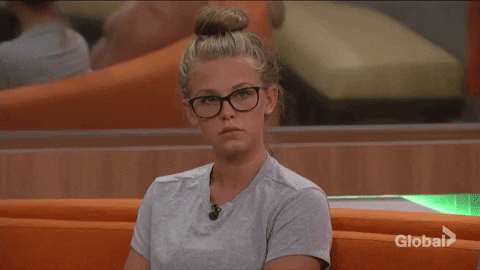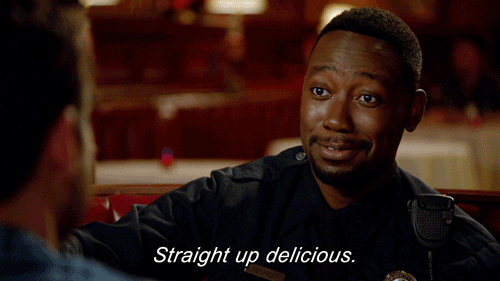What do you think?
Rate this book


448 pages, Hardcover
First published October 6, 2020

This is a book about a girl, a boy, a devil, and the stories that get told and repeated and remembered. This is a tale of power dynamics and imbalances and what humans are willing to do to not feel trapped and alone. This is all about a young girl who lives her life for herself, who lives her life in spite of the odds, who lives her life in hopes someone will recall her from memory."Stories come in so many forms: in charcoal, and in song, in paintings, poems, films. And books."
"Spells are for the witches, and witches are too often burned."
"I remember you."
"I am stronger than your god and older than your devil. I am the darkness between stars, and the roots beneath the earth. I am promise, and potential, and when it comes to playing games, I divine the rules, I set the pieces, and I choose when to play. And tonight, I say no."
"It’s just a storm, he tells himself, but he is tired of looking for shelter. It is just a storm, but there is always another waiting in its wake."
"His heart has a draft. It lets in light. It lets in storms. It lets in everything."
"Books, she has found, are a way to live a thousand lives—or to find strength in a very long one."
"Because time is cruel to all, and crueler still to artists. Because vision weakens, and voices wither, and talent fades. " He leans close, twists a lock of her hair around one finger. "Because happiness is brief, and history is lasting, and in the end, " he says, "everyone wants to be remembered."
"Humans are capable of such wondrous things. Of cruelty, and war, but also art and invention."


What is a person, if not the marks they leave behind?
“No matter how desperate or dire, never pray to the gods that answer after dark.”
“Nothing is all good or all bad,” she says. “Life is so much messier than that.”
And there in the dark, he asks if it was really worth it.
Were the instants of joy worth the stretches of sorrow?
Were the moments of beauty worth the years of pain?
And she turns her head, and looks at him, and says, “Always.”

★ Rigel: Storytelling
What she needs are stories.
Stories are a way to preserve one’s self. To be remembered. And to forget.
Stories come in so many forms: in charcoal, and in song, in paintings, poems, films. And books.
Books, she has found, are a way to live a thousand lives—or to find strength in a very long one.

★ Bellatrix: Addie LaRue, the Muse

★ Betelgeuse: Love & Luc, the Devil
“You are not capable of love because you cannot understand what it is to care for someone else more than yourself.”
“Pain can be beautiful,” he says, exhaling a cloud of smoke. “It can transform. It can create.”
“Do not mistake this—any of it—for kindness, Adeline.” His eyes go bright with mischief. “I simply want to be the one who breaks you.”

★ Alnilam: Henry, the Storykeeper

★ Alnitak: Feminism
Freedom is a pair of trousers and a buttoned coat. A man’s tunic and a tricorne hat. If only she had known. The darkness claimed he’d given her freedom, but really, there is no such thing for a woman, not in a world where they are bound up inside their clothes, and sealed inside their homes, a world where only men are given leave to roam.

★ Mintaka: History & Art
“Art is about ideas. And ideas are wilder than memories. They’re like weeds, always finding their way up.”

★ Saiph: Loneliness & Remembrance
“Why would anyone trade a lifetime of talent for a few years of glory?”
“Because happiness is brief, and history is lasting, and in the end,” he says, “everyone wants to be remembered.”
“The vexing thing about time,” he says, “is that it’s never enough. Perhaps a decade too short, perhaps a moment. But a life always ends too soon.”
Eurocentrism (also Eurocentricity or Western-centrism) is a worldview that is centered on Western civilization or a biased view that favors it over non-Western civilizations.
"…drawing Addie back to Marseilles, to Budapest, to Dublin.”
“A park in London. A patio in Prague. A team room in Edinburgh.”
"Addie was used to passing glances—her features are sharp, but feminine, her eyes bright above the constellation of freckles on her cheeks, a kind of timeless beauty, she’s been told”
No one is ever ready to die.
Even when they think they want to.
No one is ready.
He isn’t ready.
But it is time.
It is time.
Bea leans toward him. “But that’s the thing, Henry, you haven’t been you. You waste so much time on people who don’t deserve you. People who don’t know you, because you don’t let them know you.” Bea cups his face, that strange shimmer in her eyes. “Henry, you’re smart, and kind, and infuriating. You hate olives and people who talk during movies. You love milkshakes and people who can laugh until they cry. You think it’s a crime to turn ahead to the end of a book. When you’re angry you get quiet, and when you’re sad you get loud, and you hum when you’re happy.”
“And?”
“And I haven’t heard you hum in years.” Her hands fall away. “But I’ve seen you eat a shit ton of olives.”
Of course, she said no.
Adeline is three and twenty, already too old to wed.
Three and twenty, a third of a life already buried.
Three and twenty--and then gifted like a prize sow to a man she does not love, or want, or even know.
She said no, and learned how much the word was worth.
“[…] It is sad, of course, to forget.
But it is a lonely thing, to be forgotten.
To remember when no one else does.”
“I gave you what you asked for, Adeline. Time, without constraint. Life without restriction.”
“You cursed me to be forgotten.”
“You asked for freedom. There is no greater freedom than that. You can move through the world unhindered. Untethered. Unbound.”
“Henry is an impossible thing, her strange and beautiful oasis. But he is also human, and humans have friends, have families, have a thousand strands tying them to other people. Unlike her, he has never been untethered, never existed in a void.”
“[…] She wonders about Henry. Wonders at the loneliness she sees behind his eyes. Wonders at the way the waiters and the bartenders and the other patrons look at him, the warmth he doesn’t seem to notice.”
“Why would anyone trade a lifetime of talent for a few years of glory?” Luc’s smile darkens. “Because time is cruel to all, and crueler still to artists. Because vision weakens, and voices wither, and talent fades.” He leans close, twists a lock of her hair around one finger. “Because happiness is brief, and history is lasting, and in the end,” he says, “everyone wants to be remembered.”
But this is how you walk to the end of the world. This is how you live forever. Here is one day, and here is the next, and the next, and you take what you can, savor every stolen second, cling to every moment, until it’s gone.
"And no matter how desperate or dire, never pray to the gods that answer after dark."










What is a person, if not the marks they leave behind?

